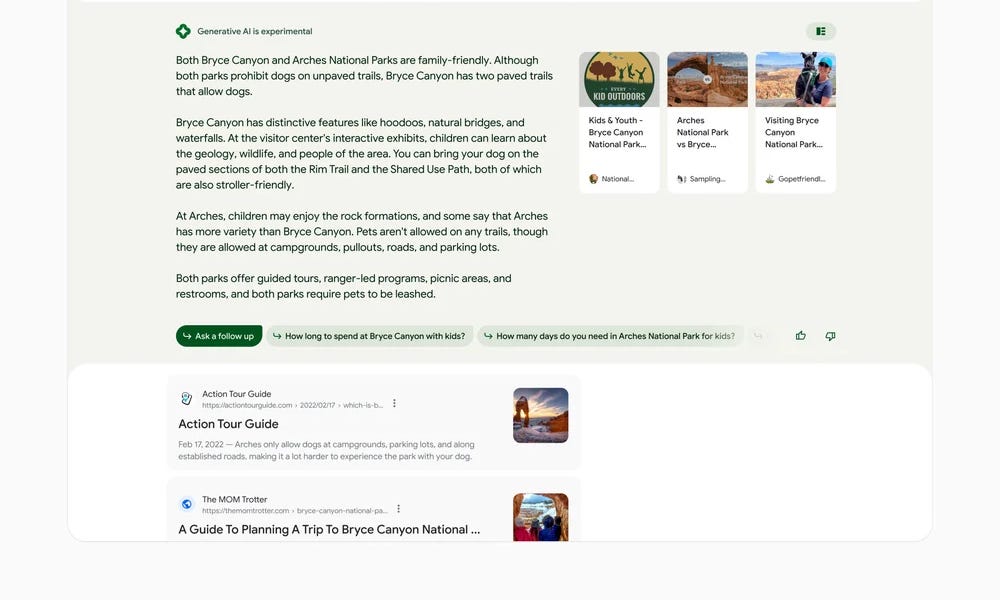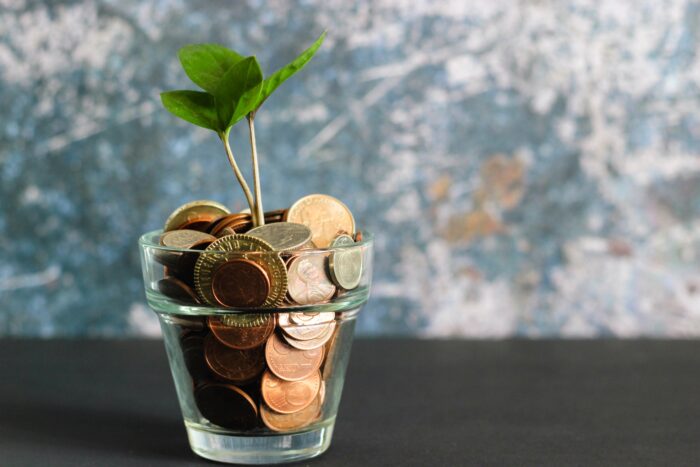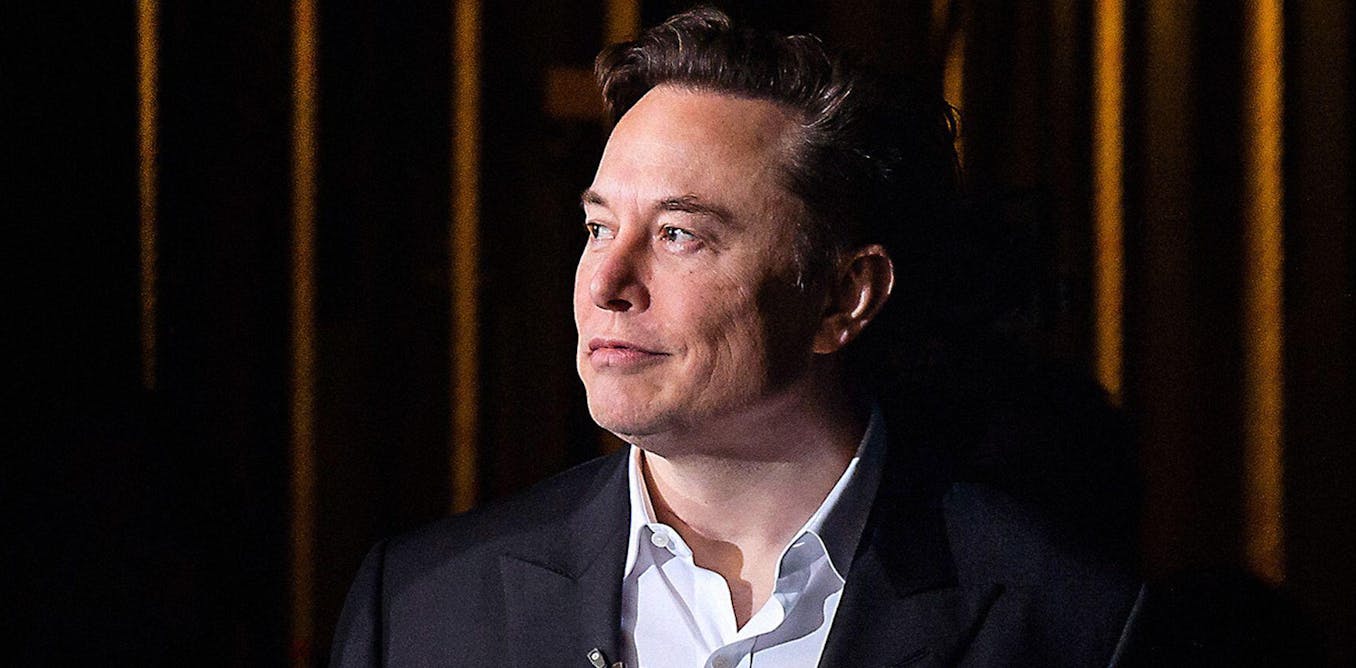- Digital Media Products, Strategy and Innovation by Kevin Anderson
- Posts
- Betteridge's rules for surviving the coming collapse of search
Betteridge's rules for surviving the coming collapse of search
When you should increase your subscription price
Ian Betteridge, he of Betteridge’s Law of Headlines, has some very timely advice for publishers on how they can handle the end of SEO (see below for why this is important). Google is constantly tweaking its algorithms, and the third major update this year has hit some news site hard. Ian is taking a long view and offering up some solid advice on how to manage not just the collapse of SEO but the arrival of SGE - search generartive experience - in which search becomes the destination and the infinite source of answers. It might be good for users and lazy students, but it could be incredibly damaging for publishers.
Ian is right that publishers need to prepare for this future becasue it isn’t that far away. I am in violent agreement that publishers need to focus on direct relationships and not just traffic. Research is full of data points that show that building up a loyal audience that has developed a habit of coming directly to your site is really the way forward. You can achieve that through newsletters, podcasts and apps, with their powerful push notifications. Leaning into newsletters still makes heaps of sense, and I also agree that AI-generated content will not save publishers from the coming collapse of search. AI can help surface content that is more relevant to individual users, and that can help build that loyalty and habit. But that is an entirely different use case. Read on, there is a lot in his post.
Oh, that is why your traffic from search has dropped. It’s another data point in the theme of this year, which is the end of the Platform Era. This isn’t a huge structural change but simply the every so often algorithm update that whacks traffic from search. It really is just an extension of what Google has been doing. The key issues are really around ‘helpful content’, and I think that this is part of their ongoing cat-and-mouse game with content farms that churn out low-grade content. And I wonder if this will work to keep them from surfacing too much low-grade, AI-mass-produced garbage. One can hope. The moral of this story is that helpful, original content wins..
Off the back of news that the New York Times is considering raising its subscription price, Thomas Baekdal looks at when publishers should consider hiking their rates. The simple answer is when you have a mature business and not before. I think that subscription businesses like the New York Times and Netflix, which Thomas also references, are more than just mature businesses, they are - in the words of the Reuters Institute Digital News report, the winners who take most in the subscription economy. Others do not enjoy the same pricing power. But that is effectively what Thomas is saying.
This one goes in my bookmarks because measuring impact is one of those challenging goals that many publishers have. It’s important to motivating their staff, and for the increasing number of publishers that get some of their money from foundations and other sources of philanthropy, measuring impact is an important.
This is an interestig move from a major group in the US that has been a powerful incubator for local indie news publishers. They are not going to become a funder but rather help their members to fundraise. It’s super smart, exactly what I expect from their leader Chris Krewson.
The Manchester Mill, a newsletter-first publisher in the UK, is expanding. It is another example of why the humble newsletter is the MVP of local news start-ups these days.
This move by podcast shop Wondery fascinates me on a couple of points. Some podcasters have found tremendous success on YouTube so the lines are blurring between audio and video. For Wondery now to launch podcasts on a FAST (Free Ad-supported Streaming TV) platform - Amazon’s Freevee - seems to lean into this trend. We’ll see how successful it is.
EX-Twitter’s ‘bot tax’ will fackfire and X as a rebranding exercise has failed
Musk has been obsessed with bots on Twitter since before he bought it, and while it makes sense to try to reduce them, a good piece on The Conversation explains why the new USD1 fee won’t help the company with revenue and won’t reduce the issue with bots. One suggestion Steven Vass, The Conversation’s business and economics editor, has is to increase human moderation. But Musk blew up the moderation and safety teams at Twitter so it’s unlikely he will be open to that suggestion.
And while Musk hoped to turn the page with Twitter by rebranding it with his favourite brand - X - this seems only to have hastened its decline.








